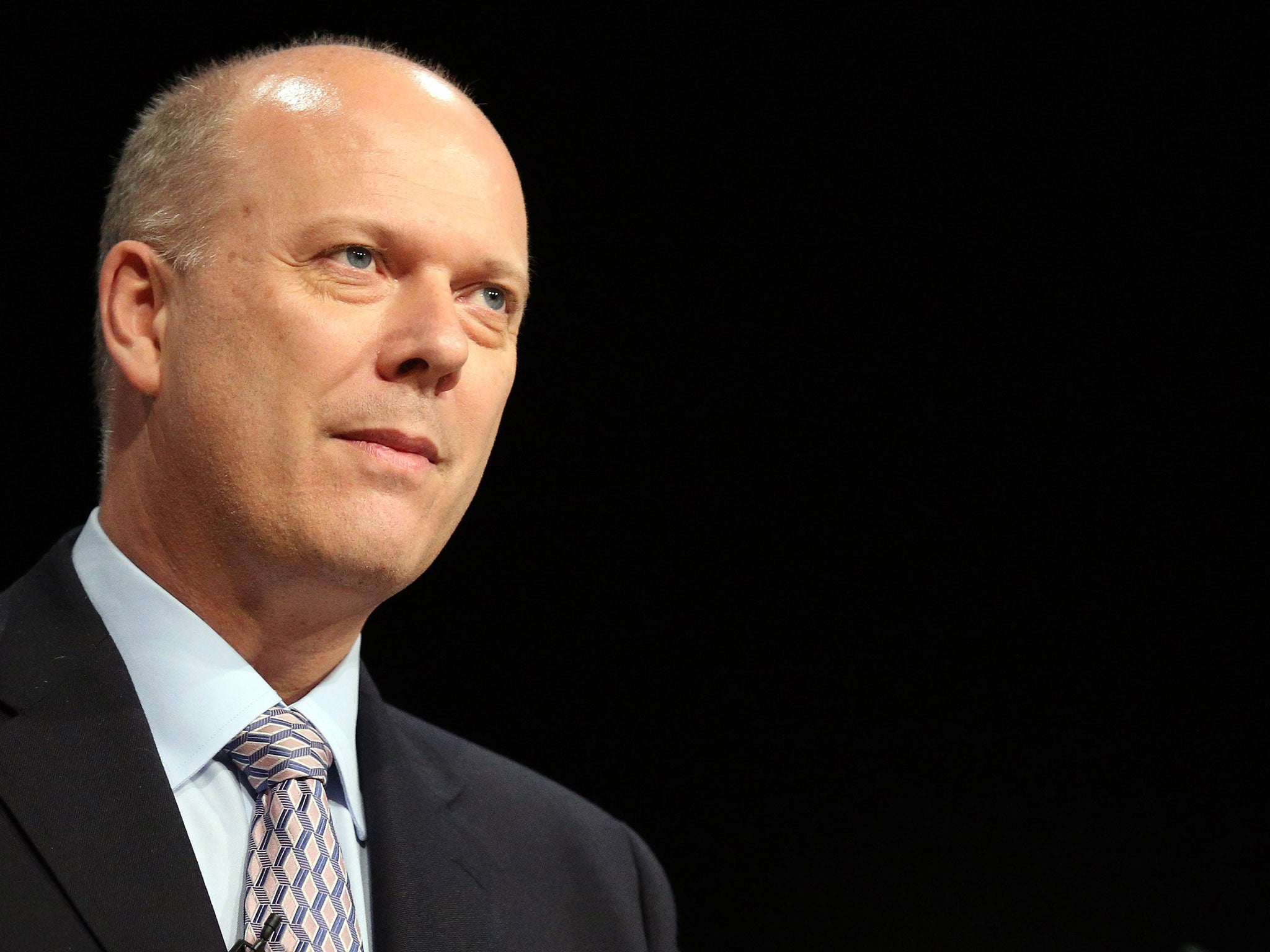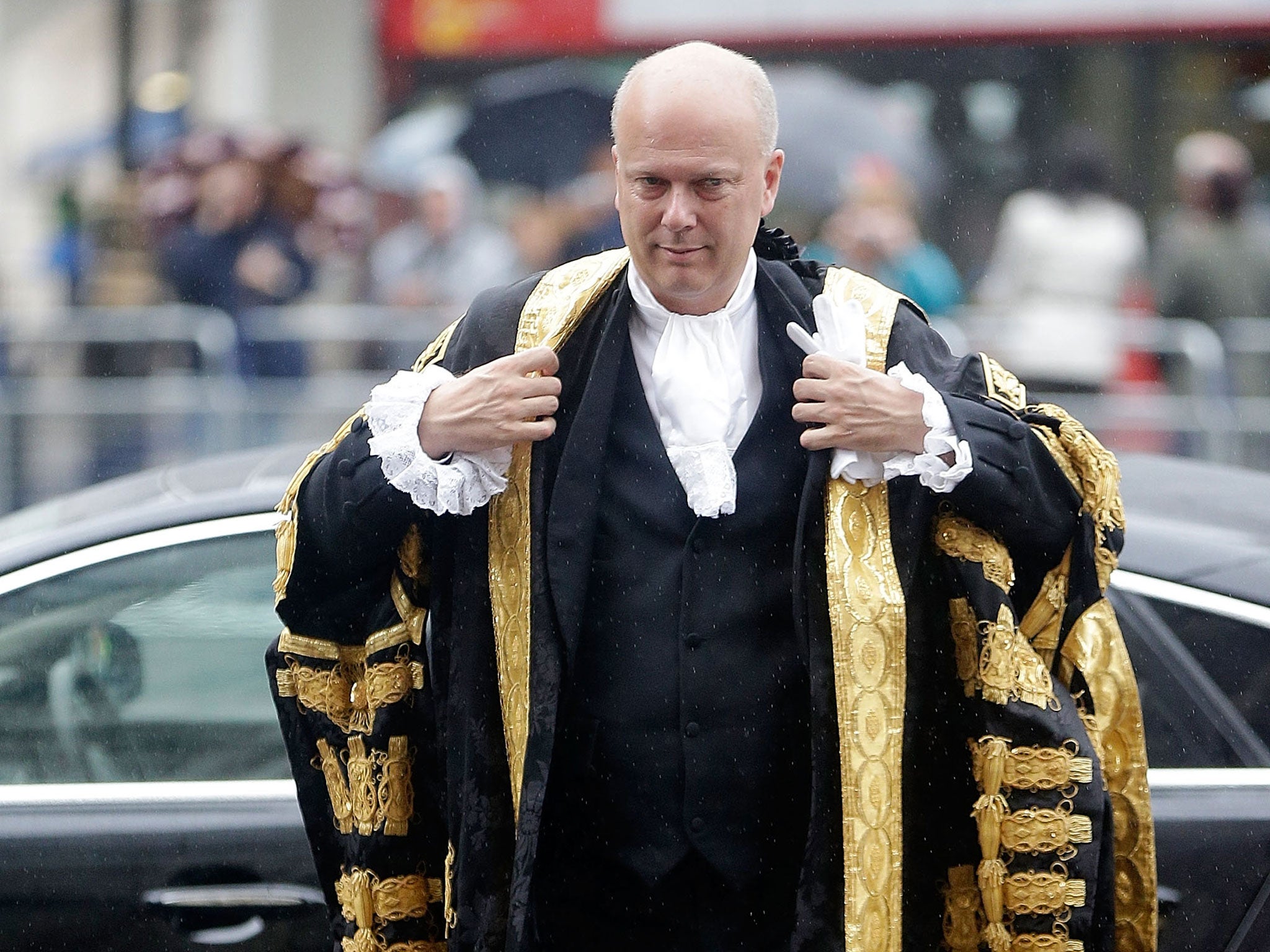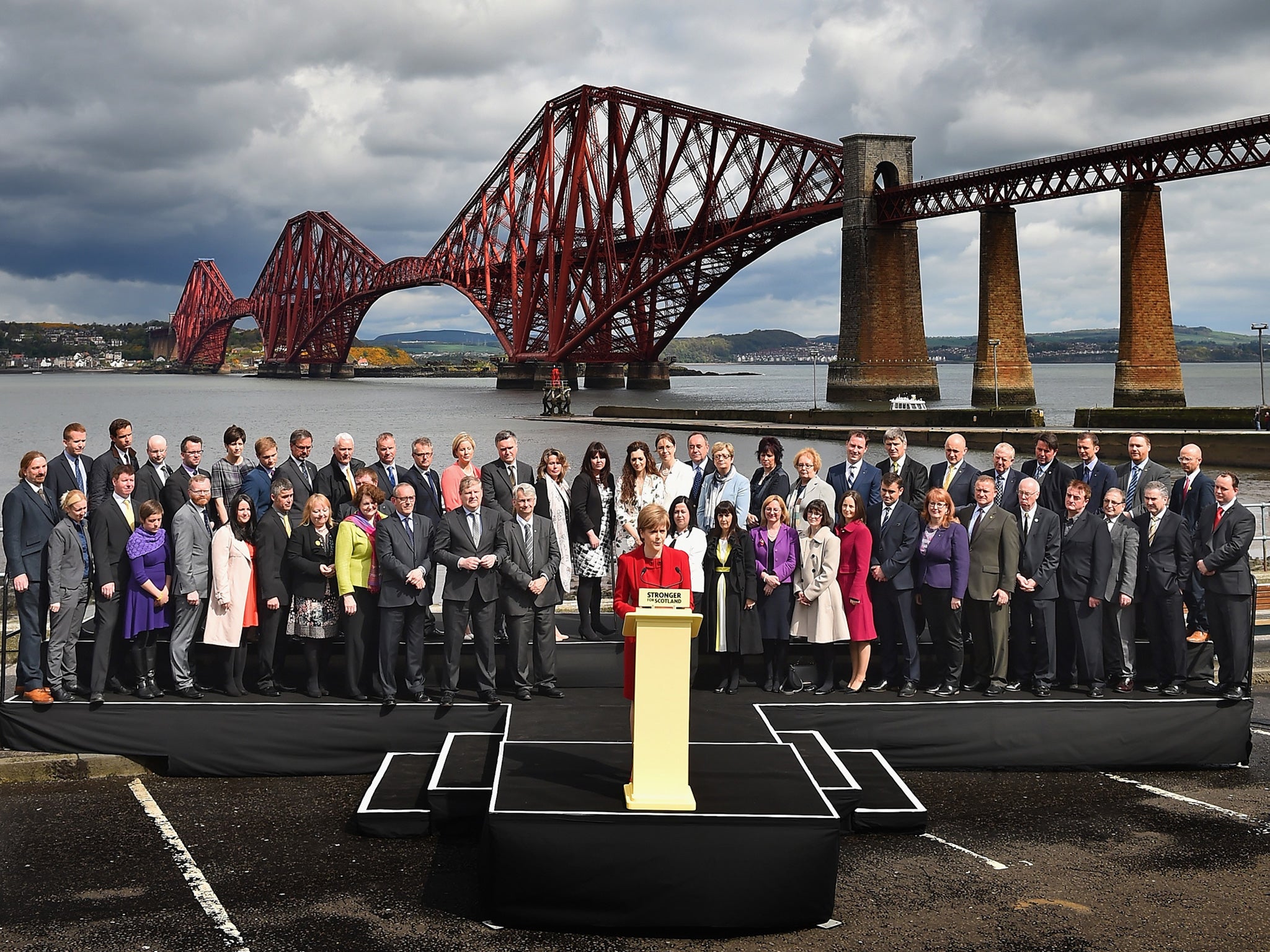Plans to give English MPs powers on laws and taxation branded 'racist' by Labour MP
The Commons’ Leader Chris Grayling was told the very idea of 'English votes for English laws' was inherently 'racist'

Your support helps us to tell the story
From reproductive rights to climate change to Big Tech, The Independent is on the ground when the story is developing. Whether it's investigating the financials of Elon Musk's pro-Trump PAC or producing our latest documentary, 'The A Word', which shines a light on the American women fighting for reproductive rights, we know how important it is to parse out the facts from the messaging.
At such a critical moment in US history, we need reporters on the ground. Your donation allows us to keep sending journalists to speak to both sides of the story.
The Independent is trusted by Americans across the entire political spectrum. And unlike many other quality news outlets, we choose not to lock Americans out of our reporting and analysis with paywalls. We believe quality journalism should be available to everyone, paid for by those who can afford it.
Your support makes all the difference.Plans to give MPs from England new powers on laws and taxation issues devolved to national parliaments in the United Kingdom, have been branded “racist” and “procedural trickery” that will put the union at risk.
The Commons’ Leader, Chris Grayling, said the government was finally after 38 years answering “the West Lothian Question” when he revealed a fast-tracked timetable intended to give English and Welsh MPs a new “veto” over laws identified as affecting only their constituents.
Labour’s Shadow Commons Leader, Angela Eagle, called the plans a constitutional “outrage”, and accused the government of cynically manufacturing a larger majority through “procedural trickery”.
The Scottish National Party MP, Pete Wishart, criticised the changes as “unworkable garbage” that that would advance the prospects of an independent Scotland.
The proposal will for the first time in Westminster’s long history create two tiers of members, with Scotland’s MPs effectively reduced to by-stander status in the early and middle stages of a large majority of legislation passing through the UK parliament.
Momentum for so-called “English votes for English laws”, was sparked by the Prime Minister the morning after Scotland last year voted to remain part of the UK.
Although promising the all-party “vow” on further devolution would be honoured, David Cameron insisted the anomaly of English MPs potentially being outvoted on matters that had been devolved would end.

With the Scotland Bill on further devolution currently passing through Westminster, Mr Cameron wanted the issue of England-only laws addressed ahead of the summer recess.
Although every MP will technically continue to have an equal vote on every bill, Mr Grayling said that where legislation related to only England and Wales, there would need to be a “double majority” with both English and UK MPs needing to support England-only issue for it to pass into law.
There will be no formal system to identify which laws relate only to England. The Speaker will simply make a ruling.
A new stage will be introduced for certain laws when English, and in some instances Welsh MPs, will asked to accept or veto proposed legislation. Unless it passes this stage, there will be no third reading, the routine final stage in the current system.

The consent and involvement of Scotland’s 59 MPs in all parts of the Commons work will effectively end if a debate and vote on the Grayling plans scheduled for July 15 goes the government’s way.
There will be no procedural change in the way the Lords operates. However to address any potential amendments suggested by the second chamber, a new computerised counting system involving tablet devices will be deployed to calculate the new “double majority” requirement.
Ms Eagle criticised the government for failing to consult any of the opposition parties ahead of the announcement, and of dismissing the idea, first proposed by Ed Miliband, of a constitutional convention to be set up.
In an emotional speech by Sir Gerald Kaufman, Mr Grayling was told the very idea of “English votes for English laws” was inherently “racist”.
Mr Kaufman said the government was “undermining not simply whatever differences there may be between outlooks from people of different countries within the UK” but undermining the “whole basis of British democracy” back to Magna Carta.
Mr Grayling refused to answer Mr Kaufman, the Father of the House, saying his comment about “racism” was demeaning.
The former Labour minister, Fiona McTaggart, said the proposals would act as “a knife in the heart of the union.”
Q&A: English votes for English laws
Q. So is that it – the West Lothian riddle, finally solved?
A. Not quite. Grayling has merely restructured Westminster’s political games rather than deliver a genuine solution. The Tory MP Martin Vickers asked where Grayling’s “stumbling” was heading towards. The answer is either a federalist UK, or Scotland leaving the UK. No democratic chamber where there are two classes of members is likely to endure.
Q. Surely the government has thought hard on this?
A. No they haven’t. After the panic-ridden deployment of the “vow” to keep Scotland in the UK club, it took Downing Street only a couple of hours to wreck any post-referendum unity. William Hague was quickly despatched to sketch out a plan to placate English Tories angry at the concessions Scotland was about to be handed. John Redwood offered a plan strikingly similar to what Grayling told the Commons, suggesting not much more thought has gone into this.
Q. The SNP members in the Commons, all 56 of them – they’ll be furious?
A. Furious at what? The SNP have a vested interest in seeing the union fail, and Pete Wishart is entirely correct in forecasting Grayling has helped the nationalists’ cause. Extend the consequences of what this means and it’s hard to see how a Scottish MP can ever again become prime minister, or indeed hold many of the top ministry jobs. Limit the ambition of members of any club, and they’ll take their business elsewhere – in this case out of the union.
Q. Is the change really that big?
A. There will be three new legislative grand committees: one for English MPs, one for English and Welsh MPs, and one for English, Welsh and Northern Ireland MPs. They will dictate what a lot of the full House gets to vote on.
Q. So where are the Scots?
A. Exactly.
Q. The SNP MP Ian Blackford asked why the Conservatives are bothering with all this - why not just create an English Parliament ?
A. Good question. Scotland already resembles a one-party state. The nationalists have tight control of Holyrood. Labour, the LibDems and the Tories all have only one MP north of the border. This isn’t an English Parliament, but it’s close.
Join our commenting forum
Join thought-provoking conversations, follow other Independent readers and see their replies
Comments